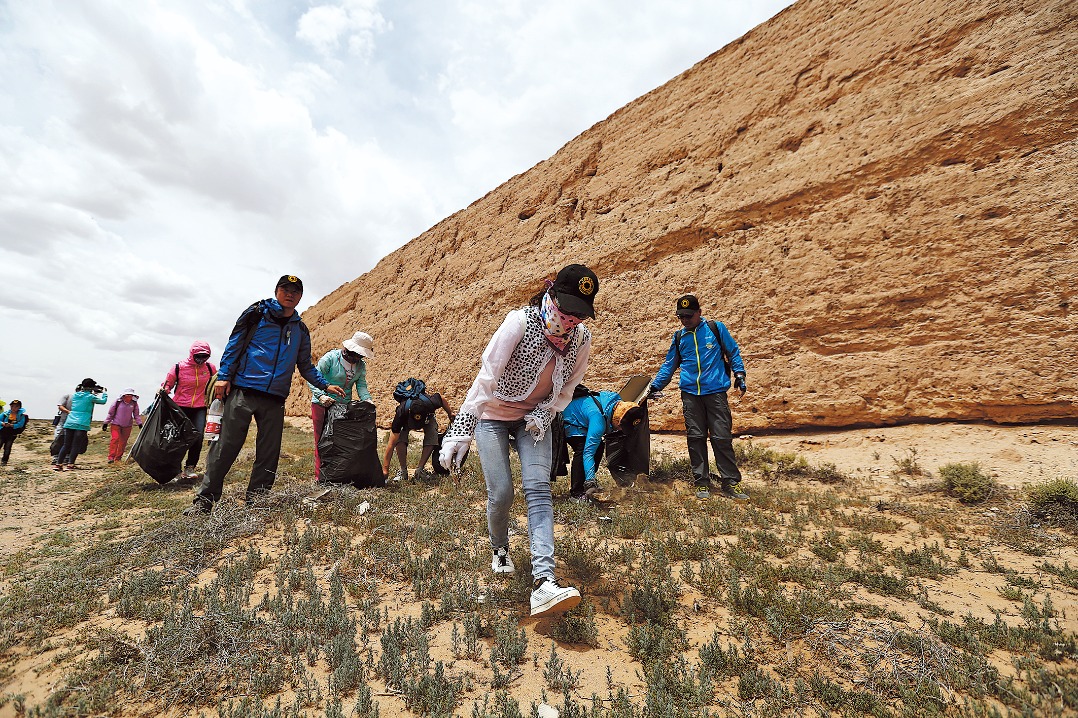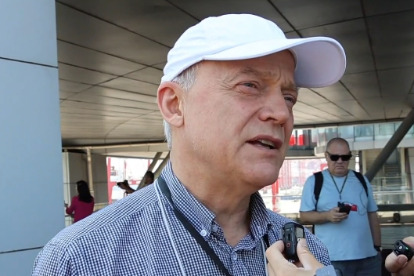Xizang high-altitude apples gain global market share

LHASA -- At an apple base in Bepa Town of Nyingchi, Southwest China's Xizang autonomous region, which sits at an altitude over 3,000 meters, Lin Chuanqing, head of a local apple business, was busy inspecting the growth of apples.
"A wave of orders poured in from overseas," said Lin. "Beyond our existing exports to Nepal, this year will mark Xizang's first-ever local apple shipments to Singapore."
"Apples here are favored by foreign markets," Lin said. His company owns over 4,000 mu (about 266.6 hectares) of apple orchards in Nyingchi, exporting 490 tonnes of apples to Nepal last year and over 137 tonnes so far this year.
However, when Lin and his team arrived in Xizang three years ago, the local apple industry operated in a rudimentary and unsystematic manner.
At that time, many local farmers mainly grew apples in their backyards and sold them in bulk without sorting or grading them. The unsold apples were stored in earthen cellars with plastic film, which was not effective for properly preserving them for more than two months.
Now, Lin's company has invested 158 million yuan (about $22 million), building a complete industrial chain from seedling research and development to cold chain logistics.
Apples grown on the plateau enjoy unique advantages. The region's intense sunlight and dramatic temperature fluctuations between day and night contribute to their exceptional sweetness and firmness, setting them apart from those cultivated in other areas of the country.
"Apples of the same size here are 15 percent heavier than others of the same variety and our apple yield will reach 3,000 kilograms per mu during peak season," said Lin. The unique environment also boosts the sugar content of Nyingchi apples to 12 percent, with vitamin levels 30 percent higher than ordinary apples.
Despite the plateau's vast territory and relatively high transportation costs, growing apples here actually works out cheaper. Eligible local businesses benefit from a series of government subsidies for freight.
"Transporting apples from Nyingchi to South China's Guangdong province is cheaper than from East China's Shandong province to Guangdong, for the government subsidies cover nearly half of the transport costs," added Lin.
Additionally, there are fewer pests on the plateau. In other areas of China, apple cultivation requires bagging to avoid pests, which alone adds 1.2 yuan per kilogram in labor costs.
"In Xizang, we don't need to bag our apples, and pesticide use is minimal," said Lin. Nyingchi apples have obtained GLOBAL Good Agricultural Practice certifications and have met the EU's 533-item pesticide residue testing standards. Even in dried apple products, residue levels are undetectable.
The apples are also precisely categorized into 16 different grades based on sugar content, size and color. Now, people in Xizang are sharing Nyingchi apples with the world, introducing a new market-recognized apple variety.
Apart from Nyingchi, there are 10,000-mu apple orchards in Shannan's Dranang county and 2,000-mu in Qamdo. A growing number of people beyond the plateau are falling in love with apples grown in Xizang.
"In November, when the apples are ripe, consumers in Singapore will be able to taste the apples from Nyingchi," Lin said.
- Xizang high-altitude apples gain global market share
- China, Indonesia sign MOU on copyright cooperation
- Drones take Xinjiang's cotton farming automation to new heights
- Five missing after landslide hit Sichuan
- Four job fairs to offer 61,000 openings in healthcare, internet, e-commerce and AI
- China activates emergency response to flooding in Guangdong





































